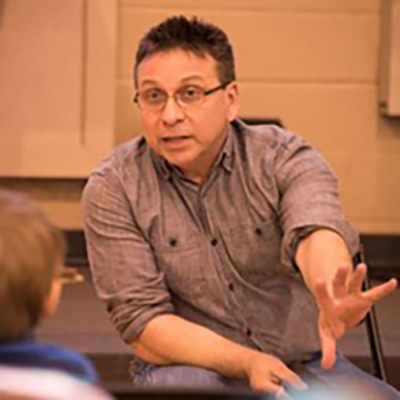 Photo contributed by Tim McCrackenOn October 11, 2012, a profound shift reshaped Tim McCracken's world. It was the day he received a life-altering diagnosis of Parkinson’s Disease (PD).
Photo contributed by Tim McCrackenOn October 11, 2012, a profound shift reshaped Tim McCracken's world. It was the day he received a life-altering diagnosis of Parkinson’s Disease (PD).
This pivotal moment not only marked a turning point in McCracken’s life, routine, and hope but also prompted him to reflect on his life before the diagnosis: “I was 47 years old with a wife and two young children, plus a growing children’s ministry at Oak Mountain Presbyterian Church, and to say I was devastated doesn’t do justice to how I felt,” McCracken said.
In addition to receiving life-changing news, McCracken gleaned insights into his new reality from celebrities grappling with the same disease. “I had seen videos of Muhammed Ali and Michael J. Fox and the effects PD had on them,” he recounted. “Plus, I had a non-blood-related aunt who had Parkinson’s, and she had suffered greatly.”
Finding help at UAB
Fortunately, a recommended treatment at UAB with Talene Yacoubian, M.D., Ph.D., professor in UAB’s departments of Neurology and Neurobiology, proved effective over time.
McCracken recalled the initial challenges: “At first, we attempted various treatments to try and help as my body slowly began to betray me. Dr. Yacoubian engaged in a process of trial and error, searching for the right combination that would work for me. After a few months, she hit on a combination that worked well. The treatment, paired with exercise— I got involved in Rock Steady Boxing— made a significant difference, and I began to feel much better.”
The team at UAB also suggested McCracken would be a good candidate for DBS (deep brain stimulation), a surgery that uses electric stimulation to treat movement disorders associated with PD.
“After talking to the doctors, doing my own research on the procedure, and talking to someone who had it done, I decided to go through with it,” he said.
“While the surgery is going on, when the DBS probe is being put in place, you actually get to hear your brain working; it sounds like an AM radio at night,” he added. “It’s one of the neatest things I’ve ever experienced, and it helped alleviate some of my anxiety. Recovery was surprisingly quick; I was back to work within a few days.”
Overcoming obstacles
He has encountered challenges during treatment, with one notable obstacle being mobility and walking.
“A major challenge has been walking,” McCracken said. “When my pills begin to wear off, I can tell because it becomes more difficult to walk without shuffling or freezing up.”
“Working with a physical therapist has immensely improved my walking,” he added.
He emphasized the vital role of fitness and exercise: “Before Parkinson's, exercise wasn't a priority, and being young, I was in pretty good shape. However, after Parkinson's, I've come to understand how important exercise is.”
“I can tell when I miss exercise now because my motor skills don't work as well,” he added. “Exercise is the key to living with PD.”
Moving forward with Parkinson’s
Despite the challenges, positive moments have unfolded in McCracken’s journey. He discovered a newfound appreciation for the sport of pickleball, even though he initially approached it with nervousness. McCracken recalled a weeklong pickleball tournament he was a part of in May of 2023.
“I had played tennis when I was younger but had never played pickleball before. I had one DBS (deep brain stimulation) surgery, and the other was scheduled when I played in this tournament,” McCracken said.
“Having not played tennis since being diagnosed, I was very nervous about playing because I wasn’t sure how my body would respond. Long story short, we won the tournament as the only unbeaten team, including two teams that had former Division 1 athletes on them.”
Inspiring moments unfolded as he grappled with the profound question of 'Why?' following his diagnosis. “I asked God that question 1000 times but never received a response,” McCracken said.
A transformative moment occurred one Sunday morning as he was teaching children at church. While reflecting on the concept of giving good gifts, a voice in his head challenged, “You think I’ve given you a snake, don’t you?” Despite initial feelings of receiving something undesirable, he was reminded to place his trust in God.
Since that pivotal moment, McCracken has embraced the role of pastor of care and visitation, where his own journey becomes a source of comfort for others facing difficult times as he visits others in the hospital.
“The first hospital visit I made was to a young man who was having brain surgery,” McCracken said. “When I shared my experience with him, it helped him relax as he was taken back to surgery.”
While the question of “Why?” still lingers, it has paved the way for McCracken to unearth a different mission at this stage of his life. Embracing this unique journey, he's committed to sharing his experiences, turning uncertainty into a tapestry of hope and resilience for others.